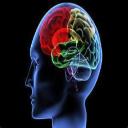Yahoo Answers is shutting down on May 4th, 2021 (Eastern Time) and beginning April 20th, 2021 (Eastern Time) the Yahoo Answers website will be in read-only mode. There will be no changes to other Yahoo properties or services, or your Yahoo account. You can find more information about the Yahoo Answers shutdown and how to download your data on this help page.
Trending News
Evolutionists: What do you honestly think humans are going to evolve into?
Going by certain principles of evolution, this has to happen. When do you think this might happen?
Stimpy. There are two reasons the question was asked in this section. 1. To see if people would give sensible answers and 2. To get answers from people who aren't up on science. Thanks.
roddysul. I'm not a scientist, so that's why I asked the question in this category. In my psychology class people have identified 26 theories of evolution (cosmic, porcine, meteoric, bacterial, alien, apes, mamalian, reptilian, agrarian, marine, magnetic, nuclear, rock, elemental, solar, lunar, creationism etc.) and I'm sure they aren't all widespread knowledge.
24 Answers
- ?Lv 68 years ago
Who knows? It depends on what selective pressures manifest over the next few million years, something which is almost impossible to predict. We might develop our space travel technology, and adapt to life aboard starships. We might remain on Earth, and adapt to increasingly hot temperatures due to global warming and the increasing size of the sun. There might be some cataclysm that makes survival more of an issue, creating stronger, healthier humans and perhaps erasing some of our social evolution entirely. Or we might kill ourselves off entirely, and evolve into nothing.
Right now, we have next to no selective pressures, so we will stay in our current form (disregarding random genetic drift, which would produce negligible changes over even very long periods of time if creatures like the coelacanth are any indication) indefinitely unless something drastic changes.
As for when, that's sort of a meaningless question. Evolution isn't something that happens at specific times. Humans do not get to Level 16 and then in a flash of light turn into their next evolutionary stage. Evolution is a slow, constant process, and it can only be seen when looking at a population in the present as compared to the distant past. The sudden appearance of many or powerful selective pressures can speed it up, and the lack thereof can slow it down. You are probably looking at hundreds of thousands of years at an absolute minimum before our descendants look appreciably different from us.
- PhotonXLv 78 years ago
Natural evolution takes many thousands of years. Homo sapiens have been around for a couple of hundred thousand years already, so it would be unreasonable to expect immenient change based on natural processes alone.
.
We are no longer limited by that, though. The advent of nanotechnology and biotechnology means that changes will be happening faster than historically possible. We are on the cusp of artificial intelligence, which adds another variable to the equation. There are some, such as Ray Kurtzweil (sp?) who think we will reach the tipping point (what he calls The Singularity) around 2045. I think that's overly optimistic, but who knows? If it takes a century to see the merging of mind and machine, and the resulting artificial speciation, that is lightning-fast.
.
We are right at the edge of being the last generations of humans who possess no nano- or bio- modifications to our bodies. The future will be a truly strange place.
.
- ?Lv 58 years ago
By means of medicine, technology, communication, transport, finance and law (and undoubtedly loads of other things too), humankind have effectively removed ourselves from all of the selection pressures associated with natural selection. Serious disability is no longer necessarily a significant impediment to raising a family, offshoot populations are rarely isolated for more than a generation or so, we are better able to deal with and survive disease and natural disasters, the "weak" broadly have as much chance to prosper as the "strong", and ugly people can score attractive partners if they're rich.
As
a result, any significant future human evolution is likely to be a direct and conscious result of the application of technology and/or genetics. Humanity is likely to be the first species (that we know of anyway) to consciously direct its own evolution. And what's really interesting is that even this consciously-directed evolution won't be directed at a particular goal - progress in technology development shows that it's far more likely that this "Post-human" evolution will develop in steps, with future stages being almost unimaginable to earlier generations. And post-human evolution is also likely to move much faster than that caused by natural selection, since it'll essentially be possible for very significant changes to occur in a single generation.
- How do you think about the answers? You can sign in to vote the answer.
- 8 years ago
1) That proved Evolution and Creation are both wrong.
2) In theory. Still Human. The physical changed, but the name is still human.
- NousLv 78 years ago
It already is whith athesists evolving away from the religious!
Research has shown atheists have a higher intelligence than people with a strong religious faith. The difference is 5.8 points according to findings in developmental psychology!
More members of the "intellectual elite" considered themselves atheists than the national average.
Only 7 percent of members of the American National Academy of Sciences believed in God. Whilst only 3.3 percent believed in God in the UK’s Royal Society.
Several Gallup poll studies of the general population have shown that those with higher IQ’s tend not to believe in God."
Neuroscientists have conducted the most comprehensive brain mapping to date of the cognitive abilities measured by the Wechsler Adult Intelligence Scale (WAIS), the most widely used intelligence test in the world.
The results show that the various factors that comprise a high or low IQ score
depend on particular regions of the brain.
The WAIS test is composed of four indices of intelligence, each consisting of several subtests, which together produce a full-scale IQ score. The four indices are the verbal comprehension index, which represents the ability to understand and to produce speech and use language; the perceptual organization index, which involves visual and spatial processing, such as the ability to perceive complex figures; the working memory index, which represents the ability to hold information temporarily in mind (similar to short-term memory); and the processing speed index.
With the exception of processing speed, which appears scattered throughout the brain, the lesion mapping showed that the other three cognitive indices really do depend on specific brain regions.
For example, lesions in the left frontal cortex were associated with lower scores on the verbal comprehension index; lesions in the left frontal and parietal cortex (located behind the frontal lobe) were associated with lower scores on the working memory index; and lesions in the right parietal cortex were associated with lower scores on the perceptual organization index.
The study also revealed a large amount of overlap in the brain regions responsible for verbal comprehension and working memory, which suggests that these two now-separate measures of cognitive ability may actually represent the same type of intelligence, at least as assessed using the WAIS.
It matters not if they are atheist because of this new type of intelligence or get it because they are atheist – it is a totally different and far more efficient process!!
Source(s): Aarhus University Ulster University Gallup California Institute of Technology (Caltech) National Institutes of Health Akademie der Naturforscher Leopoldina - 8 years ago
1 theory that I agree with is humans evolving into two classes. Because weaker genes don't die out instead there will be two types of humans. One will be tall, intelligent, fit etc while the others will be short, unfit, etc. To be honest no one really knows but I think that one makes a good point about bad genes not dying out.
- ?Lv 78 years ago
"Going by certain principles of evolution, this has to happen"
Not so, we have effectively stopped natural selection due to medicine and technology, the weak are allowed to live and breed
Humans can turn into whatever we want now, we are developing the technology to manipulate ourselves genetically. Who knows what is in store..
- AranthealLv 78 years ago
That's a moot point to speculate on as technological progress will far outpace evolution.
We will change ourselves with the aid of biotechnology way before we'll see any significant evolution in the human species.
- rainbowLv 48 years ago
Well, it's happening as we speak. If we manage to survive through the next 4-500 years, I suspect we'll slowly develop more frontal cortex and if there are any resources left, we will continue to manipulate the world around us. I hope we get prettier.
- Anonymous8 years ago
It's happening right now.
Each person can be identified by unique genetic markers yet within 900 years everything that made you unique will be gone because of evolution.









